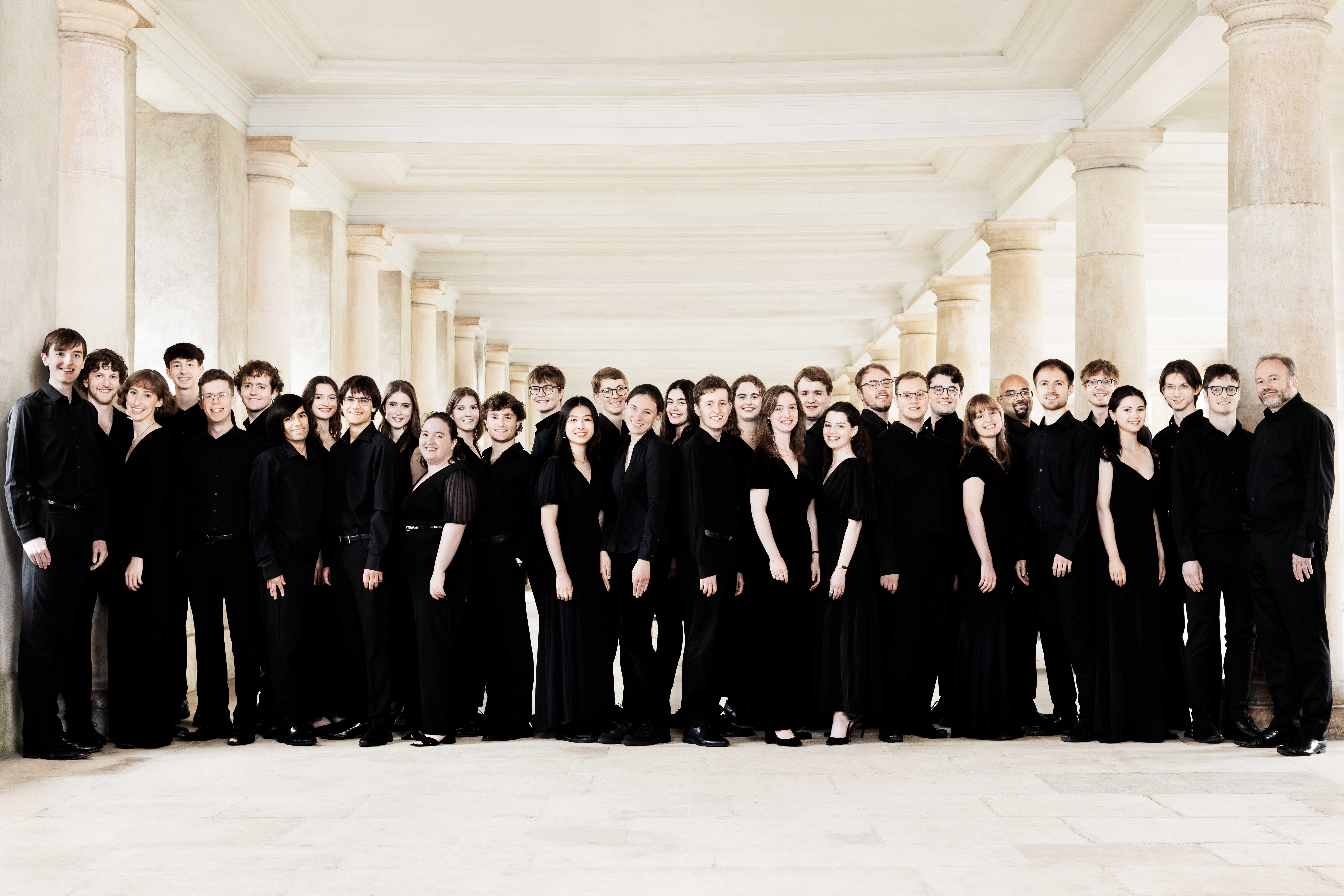Germany Tour - July 2018
> See concert details...A choir with an extraordinary presence
The Choir of Trinity College Cambridge, under the direction of Stephen Layton, gave a concert to a packed out audience in the round of St Blasien Cathedral on Saturday. The listeners simply couldn’t get enough of the marvellous, blended sound that this ensemble produces, demonstrated by the prolonged standing ovation that followed the encore, continuing even after the departure of the young singers along the central aisle of the cathedral.
The choir, which comprises around 30 students from the University of Cambridge, has several defining features. Firstly, the choir has a tremendous stage presence, performing the entire programme from memory. Also particularly striking is their gentle, flowing legato throughout the whole programme, which is consciously left only in particularly exposed places and strengthened by the formation of the singers, with the women’s and men’s voices completely mixed, to some extent as a double choir.
Further features of this extraordinary choir include the crystal-clear soprano sound, a distinct contrast from their basses, whose deep, resonant voices could easily pass for a contrabassoon in an orchestra. A special role was undertaken by one of the sopranos, blessed with perfect pitch, who gave the notes far more inconspicuously than if the conductor had used a tuning fork.
For much of the concert, the choir moved seamlessly from one piece to the next without taking a new note each time, giving rise to a unity of the highest level. There can hardly exist a concert programme that is as rounded, flowing and coherent as that of the Choir of Trinity College, Cambridge.
The first part of the concert programme was comprised of choral works from the 16th century, from Palestrina to Byrd and Tallis to two settings of the ‘Ave Maria’ text by Tomas Luis de Victoria and Robert Parsons. Particularly impressive was the imitative section at the beginning of the first Ave Maria, in which a question was posed by one chorus and answered by the other. All in all, this first part of the programme was hymn-like, almost other-worldly; the polyphony, rich in delicately interwoven lines, was flowing yet still retained a sense of the individual melodies.
The second block focused on music from the 20th century, in which the repetition of short motifs in a work by Arvo Pärt introduced a new rhythmic element to the programme sequence; the aforementioned basses were also prominent in a piece by Victor Kalinnikov. The third section of the programme was dedicated to works by contemporary composers from the northern hemisphere, such as Jaakko Mäntyjärvi (born in 1963) and Eriks Ešenvalds (born in 1977); in these compositions, the choir was able to clearly demonstrate its flexibility in terms of expression and dynamic range. Particularly impressive was a work by Rautavaara, in which one voice part repeatedly sang the invocative text ‘Jesus Christus’ against the rest of the choir.
Compositions by Herbert Howells, Ralph Vaughan Williams and Arnold Bax followed in the final part of the programme. Different rhythmic elements, the use of staccato, and reduced vocal forces, including a brilliantly fine quartet, were featured in the concluding pieces, with the crowning moment being the encore, another composition by Ešenvalds starring two soprano soloists.
The two organ scholars from Trinity College, Alexander Hamilton and Asher Oliver, performed works by Bach, Jehan Alain and Simon Preston in between the different sections of the programme. There is already a date in the diary for the next concert in St Blasien given by the Choir of Trinity College Cambridge (12th December 2020).
